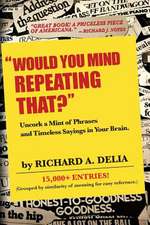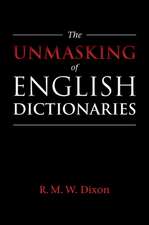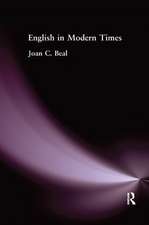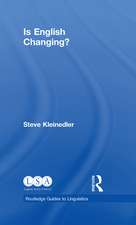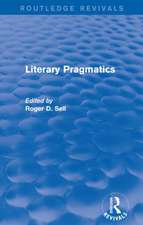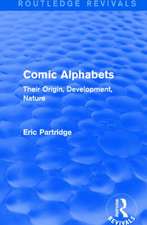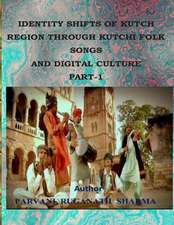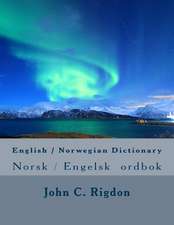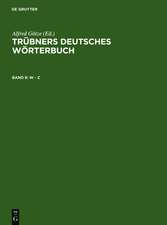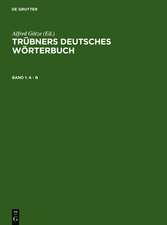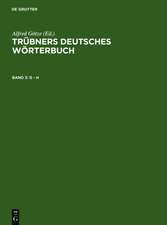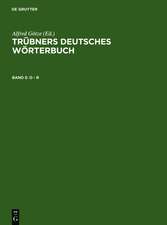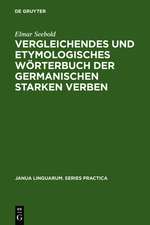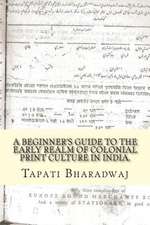Origin of Kibosh: Routledge Studies in Etymology
Autor Gerald Cohen, Stephen Goranson, Matthew Littleen Limba Engleză Hardback – 9 oct 2017
In this study, the authors present convincing and important new evidence in favour of the derivation of kibosh from the word for a fearsome Middle Eastern whip, known as the kurbash.
This monograph is one of the most significant etymological works directed at a single phrase. It is the gold standard on deep-drill, focused and exhaustive single-word lexicography and will be of interest to lexicographers and linguists in the relevant fields.
| Toate formatele și edițiile | Preț | Express |
|---|---|---|
| Paperback (1) | 257.28 lei 6-8 săpt. | |
| Taylor & Francis – 14 aug 2020 | 257.28 lei 6-8 săpt. | |
| Hardback (1) | 995.37 lei 6-8 săpt. | |
| Taylor & Francis – 9 oct 2017 | 995.37 lei 6-8 săpt. |
Preț: 995.37 lei
Preț vechi: 1213.86 lei
-18% Nou
Puncte Express: 1493
Preț estimativ în valută:
190.47€ • 203.67$ • 158.81£
190.47€ • 203.67$ • 158.81£
Carte tipărită la comandă
Livrare economică 17 aprilie-01 mai
Preluare comenzi: 021 569.72.76
Specificații
ISBN-13: 9781138628953
ISBN-10: 1138628956
Pagini: 172
Dimensiuni: 138 x 216 x 11 mm
Greutate: 0.31 kg
Ediția:1
Editura: Taylor & Francis
Colecția Routledge
Locul publicării:Oxford, United Kingdom
ISBN-10: 1138628956
Pagini: 172
Dimensiuni: 138 x 216 x 11 mm
Greutate: 0.31 kg
Ediția:1
Editura: Taylor & Francis
Colecția Routledge
Locul publicării:Oxford, United Kingdom
Cuprins
CHAPTER 1: Overview
CHAPTER 2: Introduction: ‘Origin unknown’; previous works; chronology
CHAPTER 3: Penal Servitude! continued
CHAPTER 4: Spread of put the kibosh on from Cockney
CHAPTER 5: Kibosh in several newspaper accounts
CHAPTER 6: Additional attestations of kibosh
CHAPTER 7: Three competing etymologies are unconvincing
CHAPTER 8: General observations
APPENDICES
Appendix #1: Anatoly Liberman’s 2013 article ‘Three Recent
Theories of Kibosh, continued’ (Aug. 14, 2013)
Appendix #2: kibosh-from-kurbash etymology, evidently first
Proposed by Matthew Little (Nov. 2009)
Appendix #3: Several newspaper items about chimney sweeps
Appendix #4: Political complexities in Britain of the early 1830s
Appendix #5: Notes & Queries items on a Yiddish origin of
kibosh/kybosh
Appendix #6: Two pictures illustrating use of the kurbash
REFERENCES
INDEX
CHAPTER 2: Introduction: ‘Origin unknown’; previous works; chronology
CHAPTER 3: Penal Servitude! continued
CHAPTER 4: Spread of put the kibosh on from Cockney
CHAPTER 5: Kibosh in several newspaper accounts
CHAPTER 6: Additional attestations of kibosh
CHAPTER 7: Three competing etymologies are unconvincing
CHAPTER 8: General observations
APPENDICES
Appendix #1: Anatoly Liberman’s 2013 article ‘Three Recent
Theories of Kibosh, continued’ (Aug. 14, 2013)
Appendix #2: kibosh-from-kurbash etymology, evidently first
Proposed by Matthew Little (Nov. 2009)
Appendix #3: Several newspaper items about chimney sweeps
Appendix #4: Political complexities in Britain of the early 1830s
Appendix #5: Notes & Queries items on a Yiddish origin of
kibosh/kybosh
Appendix #6: Two pictures illustrating use of the kurbash
REFERENCES
INDEX
Notă biografică
Gerald Cohen is Professor of German and Russian, with a research specialty in etymology, at Missouri University of Science and Technology, USA.
Stephen Goranson works in the library of Duke University, where he also earned a doctorate.
Matthew Little is Associate Professor of English at Mississippi State University.
Stephen Goranson works in the library of Duke University, where he also earned a doctorate.
Matthew Little is Associate Professor of English at Mississippi State University.
Recenzii
"Mr Cohen [...] worked with his co-authors to piece together how "kibosh" came into British usage in the 1830s. The resulting book 'Origins of Kibosh' in the Routledge Studies in Etymology series, settles on a convincing origin story."
-- Ben Zimmer, Wall Street Journal, 30-31 December 2017
"Read 'Origin of Kibosh' and you will indeed be instructed and amused."
-- Anatoly Liberman, The Oxford Etymologist, 29 November 2017
'To the extent that it presents all the relevant evidence, unvarnished, thus inviting serious scholars to participate in the etymological thinking that accompanies the evidence, Origin of Kibosh sets a great example and makes its case. It’s a small work of meticulous scholarship that will appeal to specialists in English (for its narrative) and etymologists (for its method).’
-- Michael Adams, Dictionaries (Journal of the Dictionary Society of North America), pp.289-298, Volume 41, Issue 2 (2020)
-- Ben Zimmer, Wall Street Journal, 30-31 December 2017
"Read 'Origin of Kibosh' and you will indeed be instructed and amused."
-- Anatoly Liberman, The Oxford Etymologist, 29 November 2017
'To the extent that it presents all the relevant evidence, unvarnished, thus inviting serious scholars to participate in the etymological thinking that accompanies the evidence, Origin of Kibosh sets a great example and makes its case. It’s a small work of meticulous scholarship that will appeal to specialists in English (for its narrative) and etymologists (for its method).’
-- Michael Adams, Dictionaries (Journal of the Dictionary Society of North America), pp.289-298, Volume 41, Issue 2 (2020)
Descriere
This is an etymological study of the origins of the word kibosh, which has long been one of the great mysteries of the English language. This monograph is one of the most significant etymological works directed at a single phrase.


